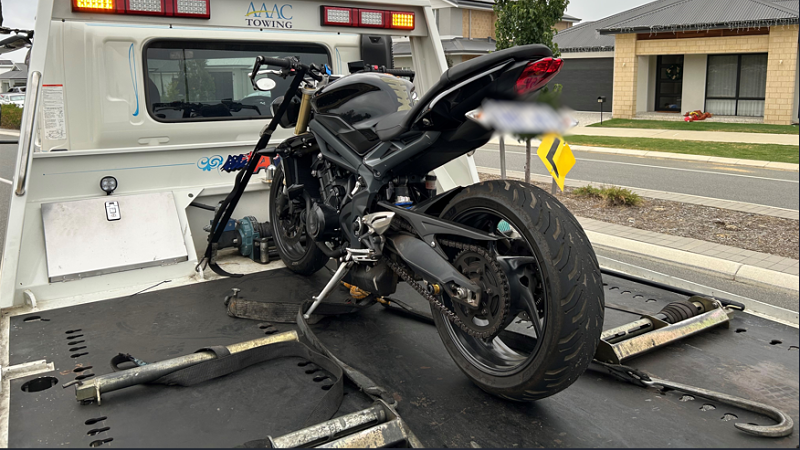Home, auto and health insurance rates are on the rise. Here’s what insurance commissioner Patty Kuderer says her office can and can’t do.
Home, auto and health insurance rates are on the rise. Here’s what insurance commissioner Patty Kuderer says her office can and can’t do.

Despite significant insurance rate hikes last year, Washington residents may not get much relief when their policies are up for renewal again.
Home, auto and health insurance rates continue to see double-digit increases year over year. The office of the insurance commissioner — the state agency in charge of regulating the industry — approved last year average base rate increases of 21.7% for home insurance, 17.5% for auto insurance and 10.7% for health insurance.
(The figures for home and auto insurance represent the weighted average of approved increases among the 20 biggest insurers doing business in the state. The figure for health insurance applies to individual market plans.)
In an interview with The Seattle Times last week, insurance commissioner Patty Kuderer, who was sworn into office earlier this month, acknowledged that some of the factors driving up insurance premiums are not within her office’s control. But she did see a role for the agency in mitigating the underlying causes of rising premiums, as well as in being a resource for consumers who struggle with insurance issues.
Elected in November, Kuderer succeeded former commissioner Mike Kreidler, who held the role since 2000. She previously served on the Washington state Legislature and ran on a platform that called for lowering auto premiums and addressing the impacts of climate change on home insurance, among other issues.
Some questions and responses have been edited and condensed for clarity.
When it comes to rates, what should Washingtonians expect this year?
They can expect that we’re going to be looking at those premium increase applications very thoroughly, and we’re going to be making sure that they are actuarially sound.
Some states allow insurance companies to file their increases and put them into use immediately. We have found that that is not consistent with strong consumer protection, and since that is the primary role of the insurance commissioner’s office, we are going to continue with the process we have in place where we approve them before they go into effect.
Do you expect home premiums to stabilize or decline?
It really does depend on how insurance companies are going to be assessing risk. The insurance industry’s model was based on certainty. We are now living in uncertain times with respect to climate change and the impact that that’s having on the insurance market. Insurers are looking more prospectively into the future in order to determine what the risk is and what they’re going to ask for in rate increases. We have to be thinking along those lines as well, too, as a state.
To what extent can the office of the insurance commissioner really rein in a growing cost of risk?
If I could control climate change, I would. That’s not something that I can control, right? But there are things that we can do to mitigate that risk, and that’s something that I see the insurance commissioner’s office engaging in.
We’re going to travel around the state and talk to folks in their communities about their insurance issues and how we can help whole communities be protected from natural catastrophes. So we’re going to be acting more proactively to help people reduce their risk and maintain insurability.
Given the devastating wildfire situation in southern California, can you talk about the wildfire and the climate change risk that Washingtonians face, and what that means for their home insurance?
There’s been a failure to take climate change seriously at the federal level, and then again, at the global level.
You’re seeing more and more attention being paid to this because the insurance industry has top climate experts on their payroll looking at where the risk is headed next. We have to think along the same lines. Local governments have to be thinking about where they’re going to allow people to build a home. We’re going to have to be looking at building codes.
That is something that I believe would help us maintain insurability in the state for homeowners.
We are paying very close attention to what happened in California so that we can learn some lessons and be way more proactive to make sure Washington doesn’t endure the same experience.
Auto insurance premiums have been on the rise. How do you see this issue?
The main driver for increased premiums for auto is the cost of claims, without a doubt. Our cars are more expensive to repair, we have very complex vehicles now, Tesla and Rivian, for example. It can take six months for a minor fender bender to be repaired. That costs money — a lot of money.
Obviously the way to reduce those premiums is you want to bring the cost of claims down. So how do you do that? You try to prevent them happening in the first place.
I’ll give you an example of something that I think we ought to go back to: Driver’s training in schools.
[Note: Driver’s education was previously offered at public schools in Washington until a funding cut in 2000.]
We took it out of the schools and put it into the private marketplace. That has priced a lot of families out that can’t afford to send their kids to driver’s training. You get a credit for that if your kid has taken a driver’s training course and successfully passed it, there are families that can’t take advantage of those discounts.
I think we should put it back in the school so that everybody has access to driver’s training. It also helps to make them safer on the road. These are common sense things that are designed to prevent accidents from happening in the first place, and that’s really what we need to do.
To what extent do uninsured motorists pass costs on to everyone else?
The extent that uninsured motorists contribute to the cost of premiums is low. That’s not really the main driver. The main driver is the cost of claims.
One in five in the state are uninsured. That’s an affordability issue. I think it’s important for us to figure out a way to make coverage affordable for folks, as opposed to punishing them more for not having insurance.
In Washington, enrollment in health insurance through the Affordable Care Act has never been higher. Do you have concerns about the Trump administration’s potential approach to the ACA?
Whatever he does with Medicaid and with the ACA is going to have an impact across the country, not just here.
I think you’re going to see people become creative and collaborative. We’re going to have to think outside the box. We have codified a lot of the ACA already into statute, but I know there’s more work we need to do to make sure that people have access to quality health care that’s affordable, and we’re going to be focused on that as well.
People frequently face rejected or delayed claims. What does the office of the insurance commissioner do to hold health insurance companies accountable?
I would encourage people who feel that they’ve had an unjustified denial or delay to contact the office of the insurance commissioner and file a complaint, and we will look into that.
There are some companies that actually have a business model based on denials. They know that a certain percentage of people won’t have the ability or the resources or even the understanding to appeal. The appeals process is super complicated. It’s another thing I’d like to address as insurance commissioner. How do we make that appeals process more fair and easier to the consumer?
Is there anything else to add?
I’d just say that I really want the consumer to think of us first when they have an insurance issue and that they reach out to our office. I strongly encourage them to do that.
Discover more from World Byte News
Subscribe to get the latest posts sent to your email.





The opinions expressed in reader comments are those of the author only and do not reflect the opinions of The Seattle Times.